That ant nest in your lawn may be bothersome, but before getting rid of it, consider the benefits of ants: They aerate the soil, bringing needed oxygen to your grass and flowers, and they prey on the larvae of other pests, such as flies, fleas and silverfish. Even fire ants_red_imported_fire_ant.htm) can be beneficial, although the problems these stinging insects cause in Texas and other Southern states often outweigh the benefits. If you decide that the nest has to go, strategies include baiting the critters, digging up the nest, dousing or dusting it or spraying chemicals. Toxic chemical sprays should be your last resort.
Get Straight to the Point
Although they seem like inelegant strategies, digging up the nest and/or dousing it with hot water may be two of the most effective. Researcher Sanford Porter recommends them for getting rid of fire ants, and as long as the nest is accessible, you can use them for other types of ants as well.
Dig Up the Mound
Dig around the mound quickly, going about 12 inches below the surface with your shovel.
Deposit the dirt -- and the ants with it --into a 5-gallon bucket. To prevent the ants from climbing out, coat the sides of the bucket, as well as your shovel, with baby powder or cornstarch.
Relocate the ants or drown them by adding dish soap to the bucket, then filling it about three-quarters full with water. The dish soap shortens the time it takes for the ants to drown, but it still might take several hours.
Douse the Nest
Fill a 5-gallon bucket with hot water. It should be hot enough to scald you, but it doesn't have to be boiling.
Pour the water directly on the nest. If it's a fire ant nest, be sure you are properly protected.
Check the colony the next day and repeat if you see activity. Continue for several days, or until activity ceases.
Dust the Nest
An alternative that's safer for your lawn is to dust the nest with either boric acid or diatomaceous earth. DE is a naturally occurring compound that lacerates the insects' exoskeletons, and boric acid -- derived from borax, which also occurs naturally -- attacks the insects' stomachs when they ingest it after grooming themselves. Pick a dry day, and spread either compound around the nest and as far inside it as you can -- a turkey baster helps get the powder in tight places. Although both compounds have low toxicity, they shouldn't be used if pets or children are around.
Bait the Ants
Boric acid is a recommended bait -- the ants eat the bait and, if the boric acid concentration is low enough, stay alive long enough to feed it to the colony. Use a bait that attracts the ants; you may have to experiment because not all ants eat the same food. Honey, peanut butter and vegetable oil are possible choices. Mix the boric acid in a 5 percent concentration; again, some experimentation may be required. Once you find the right combination, you should see a gradual reduction in the ant population as the colony dies.
Use Commercial Insecticides
In the end, when nothing short of importing a giant anteater seems to work, you may find it necessary to resort to commercial insecticide chemicals. You can use ant granules, which work much like boric acid bait but contain the slow-acting insecticide Abamectin instead of boric acid. You can also spray the nest with carbaryl -- also known as Sevin -- or chlorpyrifos, an outdoor insecticide used in agriculture. Whichever product you use, always read to the label to be sure you use it properly.
Related Articles

How to: Eucalyptus Oil as a Flea ...

How to Preserve Bird Nests

Skin Problems Caused by Swimming Pool ...

How to Keep Mosquitoes Away When ...

Purpose of Moth Balls
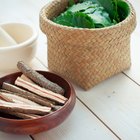
Neem Bark Benefits

Hop Allergies
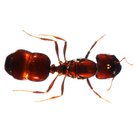
Food That Ants Won't Eat
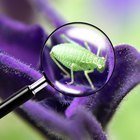
Salt As an Insecticide

How to Use Leftover Tea Leaves

How to Sanitize Sandbox Sand
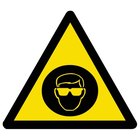
How to Sterilize Safety Goggles
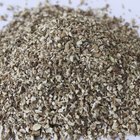
Dandelion Root for Reduced Acne Symptoms

Burdock Root for Acne

Does It Matter When Tea Expires?

Can Peanut Shells Be Used for Compost?

What Are the Dangers of Tantalum?

How to Get Pine Tar Out of Polyester

Sauna Cleaning Requirements

Sunburn & Chlorine Pool Swimming
Writer Bio
Chris Deziel has a bachelor's degree in physics and a master's degree in humanities. Besides having an abiding interest in popular science, Deziel has been active in the building and home design trades since 1975. As a landscape builder, he helped establish two gardening companies.